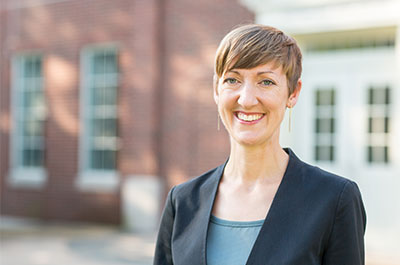Seraphic Fire delivers a stirring evening of hymns, from ancient to contemporary
Grammy-nominated vocal ensemble Seraphic Fire and guest conductor Beth Willer brought a bracing clarity of conception and execution to their inventive program, “American Hymns Rediscovered,”Thursday night in Miami Beach. Through 16 selected works ranging from medieval to 21st Century, Willer and Seraphic Fire created and sustained a powerful musical narrative (with a strong textual counterpart in Willer’s illuminating program notes) inside the spare environs of All Souls Episcopal Church.
Noting the presence of non-American composers in “American Hymns,” Willer writes that many American traditions spring from abroad, cultures repurposed in the endless American quest for newness and identity: “American music possesses a pioneering spirit and a willingness to uproot and search for something greater,” she writes, describing an attribute she also contends is shared by the program’s non-American composers.
A daring first choice, Stravinsky’s 12-tone Anthem: The Dove Descending Breaks the Air, was the perfect tone-setter for an evening of musical and spiritual passage, with its unfamiliar, amorphous melodies restlessly swinging from voice to voice.
The oldest work in the program, Hildegard von Bingen’s O virtus sapientiae (arranged by Alice Parker), was performed with stylistic individuality. It vividly evoked the timbre of medieval chant through the vocals of three distinct soloists, Sarah Brailey, Sarah Moyer (sopranos), and Clara Osowski (alto). The mix between straight tone and hints of vibrato made for a simple yet varied and convincing interpretation. The canonic entrances of the chant pitches and the layered, sustained notes gave this work a fresh character, masterfully executed by the ensemble.
The heftiest portion of the program consisted of Arvo Pärt’s Da pacem Domine and Arnold Schoenberg’s Friede auf Erden. In Willer’s words, these juxtaposed works “articulate with passion and force the ultimate desire of humanity: peace on earth.” Pärt’s approach to this plea is imbued with stillness and bell-like sonorities, while Schoenberg’s quest, reflective of his overall maximalist musical language, is characterized by an unyielding search.
Split in the dichotomy of complexity and simplicity, realism and optimism, Friede auf Erden was performed with impeccable intonation, clear diction, and a strong underlying tension supported by the angular harmonies. This composition was particularly powerful as it followed the gentle, soul-baring vulnerability of Pärt’s Da pacem Domine. The ensemble breathed and surged with uniformity as they soared on the high pleading notes and smoothly transitioned through the vocal ranges of each section in Pärt’s sparse score.
A set of three movements from William Duckworth’s Southern Harmony brought out perhaps the most evident atmospheric changes in Seraphic Fire’s interpretation and in the program. Although each tune is set to a minimalist texture, the strength of the ensemble projected in the louder sections, and their ability to lock in harmonies with clear attack in the softer ones, added a certain level of dynamism to the repertoire. The darker lower voices created a velvety fabric underneath the airier soprano parts in “Sardina.” Particularly effective was the reharmonization of the melody in the text repetition, while “War Department” showcased the brassy sounds, especially coming from the tenors and basses. The ensemble’s projection of articulations and text was excellent.
David Lang’s again (after ecclesiastes) and Caroline Shaw’s Fly Away I, in disparate ways, paint a picture of the current human condition. Shaw’s deconstruction of the popular gospel tune I’ll Fly Away, further exemplifies the poetry with fleeting passages, which find rest in the un-texted homophonic chords sung with luxurious sonorities by the ensemble.
Willer directed this work with marked gestures and overall assertive musicianship. With cyclical and delicate canonical entrances, Lang highlights “the impermanent nature of the earth itself and of us as its inhabitants,” as Willer noted. The arpeggiated accompaniments and fragmented melody induced a sense of meditation. The perpetual register shifts, come to a joined expression of realization through the homophonic texture of the words “What happened before will happen again/ I forgot it all before/ I will forget it again.”
Two works by Adam Jacob Simon, Marching to Zion and Joys Above his Power, alongside Randall Thompson’s Alleluia and Shawn Kirchner’s Hallelujah (from Heavenly Home) closed the program on a radiant and positive note.
The program will be repeated 7:30 p.m. Friday at St. Phillip’s Episcopal Church in Coral Gables, 7:30 p.m. Saturday at All Saints Episcopal Church in Fort Lauderdale and 4 p.m. Sunday at St. Gregory’s Episcopal Church in Boca Raton. seraphicfire.org
Posted in Performances
Leave a Comment
Fri Nov 10, 2017
at 2:36 pm
No Comments







